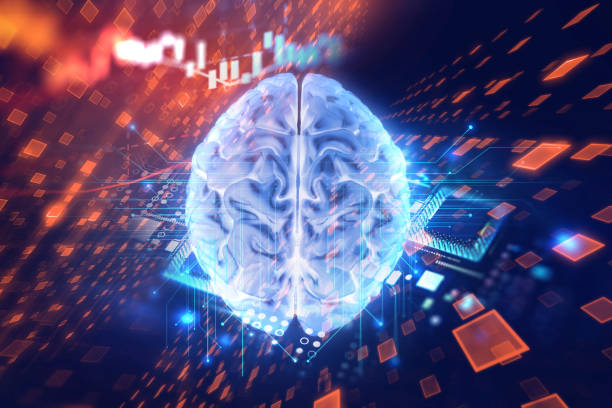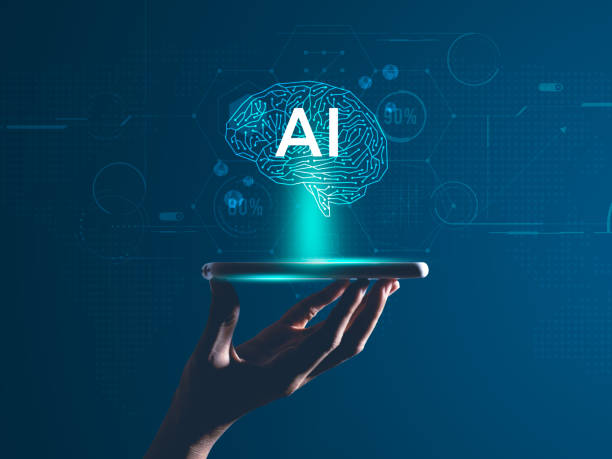What is an AI Assistant and How Does it Work?
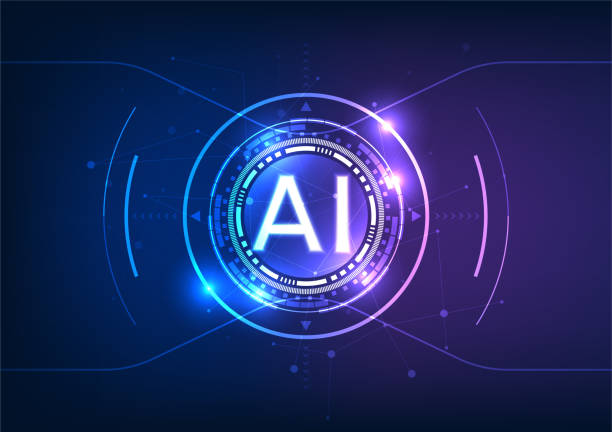
#Artificial_Intelligence (AI) is rapidly changing the world around us, and one of its most tangible manifestations is the AI assistant.
These assistants are software programs that use machine learning algorithms and natural language processing (NLP) to perform various tasks, answer questions, and help users accomplish their work.
The working mechanism of an AI assistant briefly includes the following steps: Initially, a large amount of data is fed to the assistant to learn patterns and relationships in language and the world.
This data can include text, audio, images, or video.
Then, when a user asks a question or gives a command, the AI assistant analyzes it using NLP to understand the user’s intent.
In the next step, the AI assistant uses the knowledge and information it gained during the training phase to answer the question or execute the user’s command.
Finally, the generated response or result is presented to the user.
AI assistants have applications in various fields, including answering questions, translating languages, summarizing texts, content generation, task management, controlling smart devices, and many other areas.
These tools can help individuals and organizations be more efficient and optimize their time and resources.
For example, an AI assistant can help an executive schedule meetings, manage emails, and prepare reports.
Or help a student with assignments, find scientific articles, and review course materials.
Does your current corporate website not reflect your brand’s credibility and power as it should? Rasaweb solves this challenge for you with professional corporate website design.
✅ Increase visitor credibility and trust
✅ Targeted attraction of more customers
⚡ Click for a free consultation!
Introducing the Most Popular AI Assistants in the Market
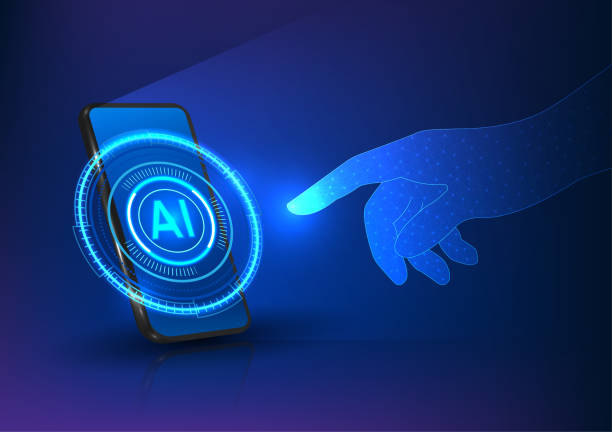
The market for AI assistants is filled with various options, each with its unique features and capabilities.
Some of the most popular AI assistants include Google Assistant, widely used on Android devices and Google Home, which can answer questions, play music, control smart home devices, and perform other tasks.
Also, Siri is Apple’s AI assistant found on iOS and macOS devices, capable of answering questions, making calls, sending messages, and performing other tasks.
Alexa from Amazon, used on Echo devices and other smart devices, can play music, read the news, control smart home devices, and perform other tasks.
In addition to these famous assistants, there are other AI assistants designed for specific purposes.
For example, Bard is a Google AI assistant that can generate text, translate languages, answer your questions informatively, and You.com is an AI-powered search engine that can quickly find relevant information and personalize search results.
Choosing the best AI assistant depends on your needs and preferences.
Comparison of Key Features and Capabilities of AI Assistants

To choose the best AI assistant for your needs, you should compare their key features and capabilities.
Some of the most important factors to consider include voice recognition accuracy, response speed, support for various languages, personalization capabilities, integration with other applications and devices, and price.
For example, Google Assistant is known for its high voice recognition accuracy and fast response speed, while Siri is famous for its personalization capabilities and strong integration with other Apple devices.
Alexa is also a popular choice for many users due to its extensive support for smart home devices and diverse skills.
It is important to carefully evaluate your needs before making a decision and choose an assistant that best meets them.
You can compare these assistants from different aspects using the tables below:
| Feature | Google Assistant | Siri | Alexa |
|---|---|---|---|
| Voice Recognition Accuracy | Excellent | Good | Good |
| Response Speed | Excellent | Good | Medium |
| Language Support | Very Good | Good | Good |
| Personalization Capabilities | Good | Excellent | Medium |
| Integration with Other Apps | Good | Excellent (in Apple ecosystem) | Very Good |
| Capability | Google Assistant | Siri | Alexa |
|---|---|---|---|
| Smart Home Device Control | Very Good | Good | Excellent |
| Music Playback | Very Good | Good | Excellent |
| Sending Messages | Good | Excellent | Medium |
| Phone Calls | Good | Excellent | Medium |
| Setting Reminders | Very Good | Excellent | Excellent |
Step-by-Step Guide to Setting Up and Using an AI Assistant
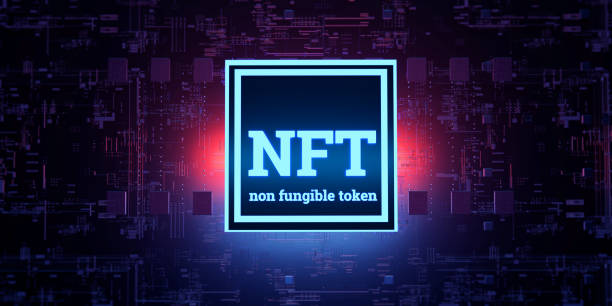
Setting up and using an AI assistant is usually a simple and easy process.
In most cases, you just need to download the relevant application from your phone’s app store and follow the on-screen instructions.
For example, to set up Google Assistant, you need to install the Google app on your phone, then go to the AI assistant settings and activate it.
After activation, you can speak to your assistant by saying “Ok Google” or “Hey Google” and ask it to perform various tasks.
To use Siri, simply hold down the Home button or the side button on your phone to activate Siri.
Then you can speak to it and ask it to perform various tasks.
To set up Alexa, you need to plug in an Echo device or another smart device that supports Alexa, and install the Alexa app on your phone.
Then you can speak to your assistant by saying “Alexa” and ask it to perform various tasks.
After the initial setup, you can personalize your AI assistant and change various settings to enhance your user experience.
You can change the assistant’s language, alter its voice, modify privacy settings, and perform many other adjustments.
Did you know that 85% of customers check your company’s website before any interaction?
With Rasaweb, build a corporate website that befits your reputation.
✅ Increase customer credibility and trust
✅ Attract high-quality leads
⚡ Get a free website design consultation
Best Applications of AI Assistants in Daily Life

AI assistants can help you in many aspects of daily life.
Some of its best applications include:
* **Time and Task Management**: An AI assistant can help you manage your time and tasks.
You can ask it to schedule your meetings, set reminders, create shopping lists, and perform other tasks.
* **Answering Questions**: An AI assistant can answer your questions.
You can ask it to find information on a specific topic, predict the weather, state exchange rates, and answer other questions.
* **Entertainment**: An AI assistant can entertain you.
You can ask it to play music, play podcasts, tell jokes, and play games.
* **Smart Home Device Control**: An AI assistant can control your smart home devices.
You can ask it to turn lights on and off, adjust the thermostat, unlock doors, and control other devices.
* **Learning a New Language**: With an AI assistant, you can learn a new language.
You can ask it to pronounce new words and phrases, practice simple conversations, and learn the new language.
These are just a few examples of the many applications of AI assistants in daily life.
By using this powerful tool, you can make your life easier and more efficient.
Important Tips for Maintaining Privacy When Using an AI Assistant
![]()
Maintaining privacy when using an AI assistant is very important.
AI assistants collect a lot of information about you, including personal information, search history, location data, and information about how you use your devices.
This information can be used for various purposes, including targeted advertising, service improvement, and even identification.
To maintain your privacy when using an AI assistant, you should take the following steps:
* **Check privacy settings**: Most AI assistants allow you to change your privacy settings.
Check what information is collected and how it is used.
You can change settings to prevent the collection of certain information.
* **Pay attention to app permissions**: Apps that have access to the AI assistant can collect your information.
Before installing apps, pay attention to their permissions and only grant access to apps you trust.
* **Use a strong password**: Use a strong password for your account and change it regularly.
Avoid using the same password for multiple accounts.
* **Install security updates**: Install security updates regularly to protect your device from security vulnerabilities.
* **Be aware**: Be aware of what information you share with your AI assistant and avoid sharing sensitive information.
By following these tips, you can maintain your privacy when using an AI assistant.
What Will Be the Future of AI Assistants?
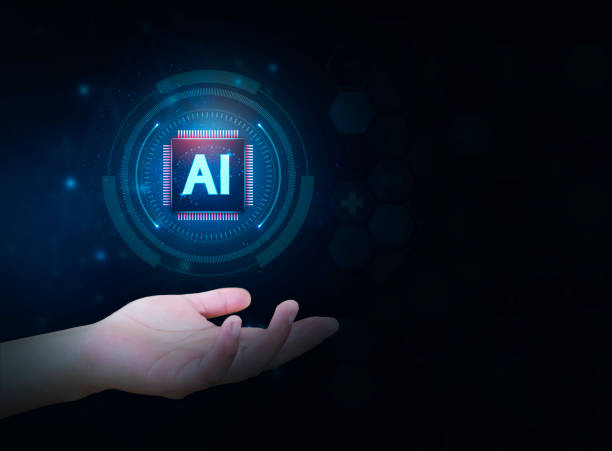
The future of AI assistants is very bright.
With advancements in technology, AI assistants will be able to perform more complex tasks, interact more naturally with humans, and even recognize their emotions.
It is expected that in the future, AI assistants will be present in all aspects of our lives, from home and work to cars and wearable devices.
They will help us be more efficient, make better decisions, and lead healthier lives.
Some predictions about the future of AI assistants include:
* **Becoming Smarter**: AI assistants will become smarter and capable of performing more complex tasks.
* **More Natural Interaction**: AI assistants will be able to interact more naturally with humans.
* **Emotion Recognition**: AI assistants will be able to recognize human emotions.
* **Greater Personalization**: AI assistants will be able to fully personalize the user experience.
* **Integration with Other Technologies**: AI assistants will integrate with other technologies such as the Internet of Things, augmented reality, and virtual reality.
This integration will provide new possibilities for users.
For example, an AI assistant can help you control your smart home, receive information about your surroundings, and interact virtually with others.
Given the rapid pace of technological advancement, significant developments in the field of AI assistants are expected in the near future.
| Area | Prediction |
|---|---|
| Intelligence | Increased ability to solve complex problems and learn |
| Interaction | More natural interaction and better understanding of human language |
| Personalization | Provision of fully personalized services and information |
| Application | Widespread presence in all aspects of daily life |
| Integration | Integration with other technologies to provide seamless services |
Challenges and Concerns Regarding the Use of AI Assistants

The use of AI assistants, in addition to its benefits, also comes with challenges and concerns.
One of the most significant concerns is privacy.
AI assistants collect a lot of information about users, and this information can be misused.
Furthermore, there are concerns about data security.
Hackers can gain access to information collected by AI assistants and use it for malicious purposes.
Another challenge in this area is over-reliance on AI assistants.
If users become too dependent on AI assistants, they may lose the ability to perform simple tasks independently.
In addition, there are concerns about discrimination and inequality.
If AI assistants are trained with biased data, they may make discriminatory decisions.
For example, an AI assistant might inadvertently provide fewer services to a particular group of people.
To address these challenges and concerns, measures must be taken.
AI assistant manufacturers should strive to ensure user security and privacy.
Furthermore, efforts should be made to train AI assistants with diverse and non-discriminatory data.
Users should also be aware of how they use AI assistants and avoid excessive reliance on them.
Did you know that 94% of users’ first impression of a business is related to its website design? With professional corporate website design by **Rasaweb**, turn this first impression into an opportunity for growth.
✅ Attract more customers and increase sales
✅ Build credibility and trust in the audience’s eyes⚡ Get a free website design consultation!
Impact of AI Assistants on Various Jobs and Industries
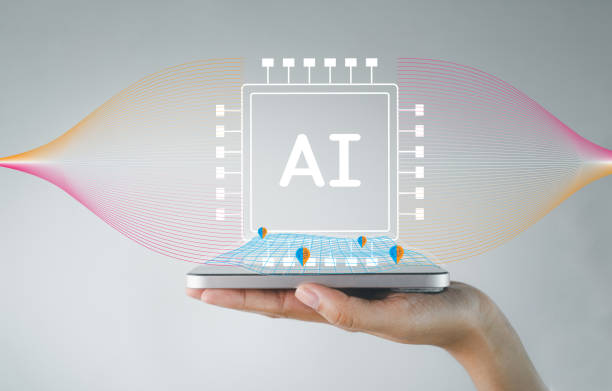
AI assistants have a significant impact on various jobs and industries.
These tools can increase productivity, reduce costs, and create new opportunities.
In the customer service industry, AI assistants can answer customer questions, resolve their issues, and provide better services.
This can lead to increased customer satisfaction and reduced support costs.
In the healthcare industry, AI assistants can help doctors diagnose diseases, prescribe medications, and monitor patient conditions.
This can lead to improved quality of healthcare and reduced treatment costs.
In the education industry, AI assistants can help students in learning, teachers in teaching, and administrators in managing schools.
This can lead to improved quality of education and increased access to education.
In the manufacturing industry, AI assistants can help workers perform their tasks, reduce human errors, and increase productivity.
This can lead to reduced costs and increased profitability.
However, the use of AI assistants can also lead to job displacement.
Jobs involving repetitive and automatable tasks are more at risk of being replaced by AI assistants.
To address this challenge, attention must be paid to training and retraining the workforce so that individuals can learn new skills and be employed in new jobs.
Ultimately, the impact of AI assistants on various jobs and industries depends on how these tools are used and the readiness of individuals and organizations to embrace change.
How to Choose the Right AI Assistant for Yourself?

Choosing the right AI assistant for yourself is a decision that depends on your personal needs and preferences.
Before choosing, you should carefully consider what you expect from your AI assistant and what tasks you want to delegate to it.
If you are looking for an assistant that can help you with time and task management, you should look for one that has planning, reminder, and list-making capabilities.
If you are looking for an assistant that can answer your questions, you should look for one with extensive knowledge and strong search capabilities.
If you are looking for an assistant that can control your smart home devices, you should look for one that is compatible with your devices.
Also, you should consider the price of the AI assistant.
Some AI assistants are free, while others require a subscription fee.
Before making a decision, you should review all available options and choose an assistant that offers the best balance between price and capabilities.
Additionally, you can check other users’ reviews and experiences.
By reading user reviews, you can gain more information about the pros and cons of each AI assistant and make a better decision.
Ultimately, the best way to choose the right AI assistant is to try out several different options.
Many companies allow you to try their AI assistants for free.
By trying several different options, you can find the best assistant for your needs.
AI Assistant AI Assistant
Frequently Asked Questions
| No. | Question | Answer |
|---|---|---|
| 1 | What is an AI assistant? | An AI assistant is a software program that uses artificial intelligence to help users perform various tasks, provide information, or automate processes. |
| 2 | What are some examples of AI assistants? | Well-known examples include Siri, Google Assistant, Alexa, and Cortana. |
| 3 | How does an AI assistant work? | AI assistants typically use Natural Language Processing (NLP) to understand user voice or text commands and machine learning to improve their performance. |
| 4 | What capabilities does it have? | Capabilities such as answering questions, setting reminders, playing music, sending messages, controlling smart devices, and providing weather information. |
| 5 | How is data security managed in AI assistants? | Data security is an important concern. Companies strive to protect user data using encryption and privacy policies, but users should always be aware of potential risks. |
| 6 | Can AI assistants understand emotions? | Currently, AI assistants cannot understand true emotions, but they can detect tone and words related to emotions and provide appropriate responses. |
| 7 | What are the applications of AI assistants in the workplace? | In the workplace, they can be used for scheduling meetings, managing emails, searching for information, and even helping to draft documents. |
| 8 | What will be the future of AI assistants? | They are expected to become smarter, more personalized, and have more capabilities in the future, actively anticipating user needs and even assisting in complex decision-making. |
| 9 | What is the difference between an AI assistant and a chatbot? | An AI assistant usually has a broader range of capabilities and interactions (often voice-based), while chatbots are typically focused on specific tasks within a text-based platform. |
| 10 | How can one best use an AI assistant? | For optimal use, one should become familiar with its voice commands and capabilities, synchronize it with other devices, and allow it to learn your usage patterns through interactions. |
And other services of Rasa Web Advertising Agency in the field of advertising
Smart Social Media: An effective tool for online growth with the help of Google Ads management.
Smart Conversion Rate Optimization: A creative platform to improve sales increase through intelligent data analysis.
Smart UI/UX: Professional optimization for digital branding using key page optimization.
Smart Link Building: A new service to enhance customer behavior analysis through precise audience targeting.
Smart Google Ads: A combination of creativity and technology to improve SEO ranking through custom programming.
And over hundreds of other services in the field of internet advertising, advertising consulting, and organizational solutions
Internet Advertising | Advertising Strategy | Advertorial
Resources
Comprehensive Guide to AI Assistants
Best AI Assistants
Applications of AI in Daily Life
How to Use an AI Assistant
? To be seen and grow your business in the digital world, Rasaweb Afarin Digital Marketing Agency, specializing in corporate website design, SEO, and content marketing, is always by your side to pave your path to success with creative and result-oriented solutions. Trust us and transform the future of your business.
📍 Tehran, Mirdamad Street, next to Bank Markazi, Southern Kazeroun Alley, Ramin Alley No. 6

